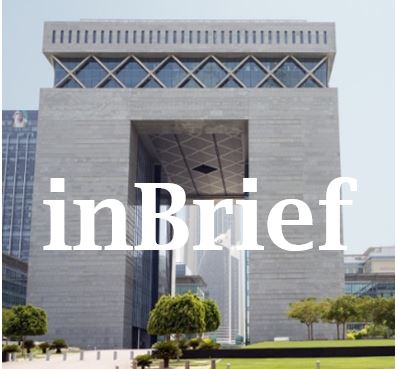The Covid-19 pandemic has swept the globe like a tsunami and it continues to impact countries and their economies worldwide. The UAE is no exception. Businesses have come under increased cost pressure as revenues decline. Such cost pressure primarily involves real estate leasing costs.
In this inBrief, we look at the impact Covid-19 has had on commercial leases.
Rent Deferment
From a real estate perspective, the authorities in the UAE have introduced a series of initiatives to support commercial tenants in response to Covid-19.
During March and April, the Government of Dubai temporarily suspended all eviction judgements and cheque dishonour complaints/actions in the Emirate.
In Abu Dhabi, Administrative Resolution 92 of 2020 was passed which grants tenants in the restaurant, tourism and recreational sectors a refund of 20 per cent of the rent value collected during 1 April 2020 to 30 September 2020.
The Dubai Free Zones Council announced a major relief package at the end of March for companies operating in the free zones of the Dubai Silicon Oasis Authority, the Dubai Airport Free Zone Authority, Jebel Ali Free Zone, the Dubai World Trade Centre, the Dubai International Financial Centre, the Dubai Development Authority, Dubai South, Meydan City Corporation and the Dubai Multi Commodities Centre (DMCC). Measures included an up to six months’ rent postponement period and easy installment plans.
In the DMCC, tenants benefitted from a waiver of rent for two months for commercial tenants impacted by the Dubai Economy Directive requiring them to temporarily close; a three months’ suspension of rent for Flexi Desk and DMCC Business Centre tenant renewals or a monthly/quarterly instalment plan with no discount; and a waiver of outdoor area rents for JLT retail tenants where DMCC is the building owner/landlord.
From April to June, retail tenants in DIFC’s Gate Avenue, Gate Village and Gate District were not required to pay basic rent. The DIFC also allowed deferred rental payments with respect to all properties owned by DIFC Investments for a period of up to six months.
Sharjah Asset Management, the investment arm of the Sharjah Government, waived commercial rents for all tenants of Haraj and Jubil markets for three months from March.
Suspension / Termination by Force Majeure
Apart from government initiatives to support commercial tenants, a force majeure clause is often found in a lease and typically excuses one or both parties from performance of their obligations under the lease following the occurrence of a force majeure event. A force majeure event is generally defined as an event beyond a party’s control (i.e. an act of god). Often the clause will provide that, if the force majeure event continues for a period of time, then either party shall have the right to terminate the lease.
If a lease does contain such a force majeure clause and it defines a “pandemic” or “epidemic” as an event of force majeure, then the tenant is likely to be protected contractually either by a suspension of the tenant’s obligation to pay the rent or a right to terminate.
UAE Law
However, if the lease does not contain such a force majeure provision, then the tenant will have to rely on its rights under UAE law.
Under the UAE Civil Code, a tenant may apply to the court to terminate a lease in circumstances of “force majeure” or an “exceptional event”.
UAE law requires performance of the lease to be impossible in a force majeure event and courts require force majeure to be unforeseeable. Both of these are arguable and may be hard to satisfy in order to fall under the protection of force majeure under Article 273 of the Civil Code.
However, if the event does not qualify as a force majeure event under UAE law, then it can be argued that it is ‘an exceptional event’ (Article 249 & 794 of the Civil Code). The law requires an exceptional event to be unforeseeable and that performance of the contractual obligations to be so onerous so as to threaten grave loss. This must be proven factually.
There have been three high profile court cases reported in the media recently where tenants were permitted to terminate their leases on the basis of the above Articles of the Civil Code and using the Covid-19 pandemic as a reason. Nevertheless, the application of these Articles is still subject to the discretion of the judge and the facts and the law must be properly presented and argued.
Conclusion
The Covid-19 pandemic will lead to continued uncertainty in the real estate market in the UAE and worldwide.
We expect that some businesses will continue to seek to negotiate or terminate their commercial leases during this pandemic on the basis of “force majeure” or “exceptional event”. ■





